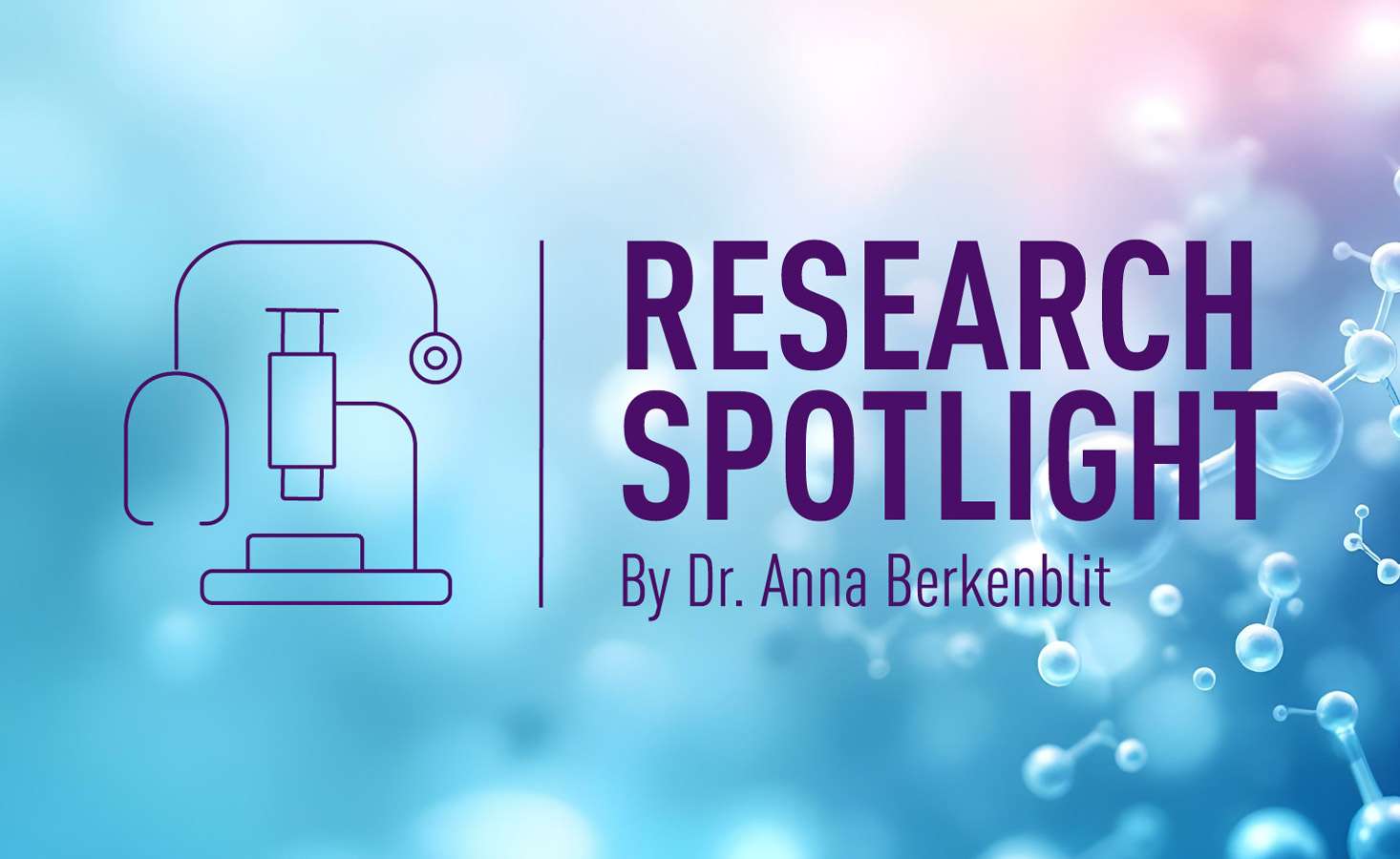 Editor’s note: The “Research Spotlight” series is written by Dr. Anna Berkenblit, PanCAN’s Chief Scientific and Medical Officer. Each month, Dr. Berkenblit shares her insights into the latest news and research in pancreatic cancer. Follow Dr. Berkenblit on X and LinkedIn.
Editor’s note: The “Research Spotlight” series is written by Dr. Anna Berkenblit, PanCAN’s Chief Scientific and Medical Officer. Each month, Dr. Berkenblit shares her insights into the latest news and research in pancreatic cancer. Follow Dr. Berkenblit on X and LinkedIn.
Artificial intelligence (AI) is transforming biomedical research, from biomarker discovery to clinical trial design. At PanCAN, we are leveraging de-identified patient health data within PanCAN’s SPARK, a data integration and analytics platform, to accelerate discoveries through both academic and commercial partnerships.
This month I spoke with PanCAN’s Chief Business Officer, Sudheer Doss, PhD, about how AI and SPARK are working together to advance pancreatic cancer research.
Q&A:
Anna: Artificial intelligence is quickly transforming healthcare, reshaping how we diagnose diseases, develop drugs, deliver care, and even prevent illness. Why is AI such an important focus in cancer research today?
Sudheer: AI has the power to process vast amounts of complex biomedical data much faster than traditional methods, and that opens up exciting new possibilities in cancer research. It can help researchers identify biomarkers for earlier detection and more personalized treatment, accelerate drug discovery and development, and improve the way clinical trials are designed. In some cases, it can even be used to predict how patients might respond to certain therapies.
Anna: Tell us about PanCAN’s SPARK platform. How is AI being used to help pancreatic cancer researchers?
Sudheer: SPARK is PanCAN’s centralized data platform. It securely houses patient health data collected through PanCAN’s sponsored clinical initiatives such as Know Your Tumor® and Precision Promise℠. Today, SPARK holds data from nearly 1,500 patients with pancreatic cancer who participated in these programs.
SPARK provides researchers with a secure, efficient way to access and analyze these data to drive discoveries. PanCAN’s SPARK platform includes a comprehensive array of data types such as clinical, genomic, and transcriptomic data, along with pathology images. Soon, it will also incorporate radiological imaging, Patient-Reported Outcomes (PROs) and actigraphy data from Precision Promise.
— Ling Huang, PhD, Henry Ford Health
It’s important to note that SPARK does not contain personal information from patients who call PanCAN’s support line. Instead, it contains de-identified clinical and research data contributed through structured programs designed for scientific use.
By applying AI to the robust patient health data available in SPARK, researchers can train new AI models, generate novel hypotheses, or use the SPARK cohort to validate innovative approaches.
Anna: How is PanCAN partnering with others to advance AI in research?
Sudheer: PanCAN is working with a wide range of academic researchers and commercial partners to apply AI across the entire healthcare “value chain” from early discovery to clinical application. This means that AI isn’t just being used in one part of the research process, but at multiple stages where it can make a real impact.
For example, our partner Aitia is using PanCAN data to build “Gemini Digital Twins” — sophisticated models that simulate biology to build the deep knowledge of complex diseases required to drive a new generation of breakthrough pancreatic cancer therapies. Meanwhile, academic researchers are exploring the data to uncover potential biomarkers, which could one day guide earlier diagnosis or help predict how a patient might respond to treatment.
In clinical development, companies like Genialis are using AI to develop predictive signatures that can help drug companies develop safer and more effective drugs, and ultimately for physicians to better match therapies to the right patients.
Clinical trials are also being transformed: Owkin has created a federated AI model that works across institutions, allowing researchers to design more efficient trials using “external control arms” without needing to transfer sensitive data between sites.
And in AI-driven oncology, Acurion is applying AI to analyze pathology slides, unlocking deeper insights into the molecular underpinnings of the tumor leading to potential treatment pathways.
Together, these collaborations show how PanCAN’s data can fuel innovation at every step helping move discoveries from the lab to real-world impact for pancreatic cancer patients.
Anna: What role does SPARK play in enabling these AI breakthroughs?
Sudheer: SPARK is more than just a data repository. It’s a powerful platform designed to support advanced analytics and machine learning. With a recent upgrade and a new technology partner, SPARK now gives researchers scalable access to large and complex datasets, along with the flexibility to explore a wide range of questions, from biomarker discovery to improving clinical trial design.
It’s also fully compatible with today’s most advanced AI and machine learning tools, making it easier than ever to apply cutting-edge techniques to pancreatic cancer research. In short, SPARK is helping ensure that PanCAN’s rich patient health data can drive meaningful breakthroughs through AI.
— Caitlin Hester, MD, University of Miami
Anna: As PanCAN continues to innovate with SPARK and AI, what are you most looking forward to in the next phase of this work?
Sudheer: What’s really exciting is how we’re beginning to break down long-standing data silos and bring different sources of information together in a meaningful way. The next big step is integrating data from the treatment arms in our Precision Promise clinical trial into SPARK. That’s going to be a game-changer.
With AI, we can now connect dots across huge, complex datasets from patient health records to pathology images and actually start predicting which treatments might work best for which patients. It’s that combination of cutting-edge technology, innovative collaboration, and real-world data that will help us move faster toward better therapies and improved outcomes for pancreatic cancer patients.
— Jeremy L. Warner, MD, JCO Clinical Cancer Informatics, Editor-in-Chief
Anna: Thank you, Sudheer for your insights into unlocking the potential of AI in pancreatic cancer research.
In summary, AI is not just a tool but a transformative force reshaping the entire landscape of pancreatic cancer research. Through PanCAN’s SPARK platform, we are harnessing the power of vast, complex patient data and integrating it with cutting-edge AI technologies to accelerate discoveries that were previously unimaginable.
By breaking down traditional data silos and fostering deep collaboration between academic institutions and commercial innovators, PanCAN is creating a dynamic ecosystem where insights flow freely from identifying new biomarkers and therapeutic targets to optimizing clinical trials and personalizing treatment strategies. This holistic approach ensures that patient-contributed data drives meaningful innovation at every step, ultimately bringing us closer to more effective therapies and improved outcomes for those affected by pancreatic cancer today and in the future. The journey ahead is filled with promise, powered by the synergy of data, technology, and human expertise working together to change the course of this devastating disease.
